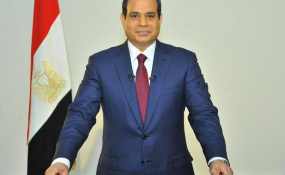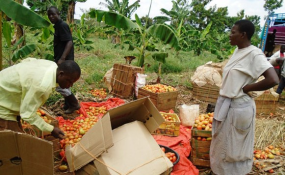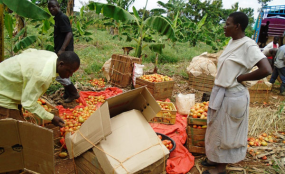Cairo — President Abdel Fattah al-Sisi said on Saturday that public debt reached EGP2.3 trillion and that he "will not hesitate" to take measures to improve the economy.
Sisi made the statements in a press conference held during the opening of a petrochemical complex in Alexandria.
He said the appointment of 900,000 people in the government sector due to public "pressure" and increasing salaries to EGP 228 billion annually instead of EGP 80-90 billion raised the public debt.
He added that it makes up 97-98 per cent of the Gross Domestic Product (GDP) as it stands at EGP2.3 trillion, up from EGP800 billion before 2011.
During his speech, Sisi stressed the importance of economic reform and said "the first effort at reform was in 1977" which was not accepted by the citizens and accordingly the state backed down and kept postponing it up until now.
Egypt is currently pushing ahead with reforms which include plans for a VAT tax and further subsidy cuts that were put on hold when global oil prices dropped.
The International Monetary Fund agreed on Thursday, in principal, to lend Egypt $12 billion over three years to support the government's reform programme.
Earlier last week, the government announced a sharp rise in electricity prices by up to 40 per cent on households as part of its plan to eliminate subsidies in the next few years.
Egypt's finance ministry expects a budget deficit of 9.8 per cent of the GDP in the fiscal year 2016-2017. It also expects revenues to reach EGP 669.7 billion and expenses to total EGP 974.8 billion.
The central bank said last week that Egypt's foreign reserves fell sharply by $2 billion at the end of July, reaching $15.536 billion, down from $17.5 billion in June.
The reserves remain to be less than half of what the country had before the 2011 Uprising when they stood at almost $36 billion.








